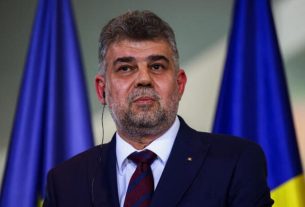Vienna — Austria’s coalition negotiations between the Social Democratic Party (SPÖ), the Austrian People’s Party (ÖVP), and the liberal Neos face a critical juncture as deep divisions persist over taxes, economic policy, and the €14 billion budget deficit.
The SPÖ has proposed that wealthier individuals contribute more to budget consolidation, widely seen as a push for wealth and inheritance taxes. Chancellor Karl Nehammer of the ÖVP strongly rejected the idea, stating, “There will be no wealth or inheritance taxes with the People’s Party,” and warned that insisting on such measures could collapse the talks. Nehammer has steadfastly opposed new taxes, emphasizing his stance this week.
Initially slated for an interim report by December 6, the discussions have been extended to December 9. By December 12, a high-level steering group comprising Nehammer, SPÖ leader Andreas Babler, Neos leader Beate Meinl-Reisinger, union head Wolfgang Katzian, and Chamber of Commerce President Harald Mahrer will determine whether further negotiations are viable.
While both the ÖVP and SPÖ acknowledge the urgency of addressing the deficit, their approaches diverge sharply. The SPÖ accuses the ÖVP of shirking responsibility for the fiscal crisis and criticizes the Neos’ focus on raising the retirement age and reducing payroll taxes. Meanwhile, the ÖVP insists on aggressive economic measures to support struggling businesses. “If we don’t act now, companies will start collapsing,” warn party insiders. The SPÖ agrees on economic challenges but prioritizes labor market investments to curb unemployment and its impact on the budget.
Key areas of deadlock include justice reform, constitutional issues, and media policy. ÖVP negotiator Karoline Edtstadler has suggested addressing contentious topics through a constitutional convention, a move dismissed by SPÖ and Neos as an attempt to sideline critical discussions.
While disagreements over media policies are unlikely to derail the talks, unresolved questions about spending cuts and budget priorities loom large.
Doubt is growing among key figures, including Katzian and Mahrer, who played pivotal roles in initiating the negotiations. The SPÖ fears being cornered into supporting austerity measures, while the ÖVP worries about alienating businesses and industry leaders.
The Neos, while advocating reforms, are reportedly divided in their working groups. Meinl-Reisinger and her allies are seen as seeking compromises, but internal divergences complicate progress.
With time running out, the parties face mounting pressure to reach a consensus. “By December 12, we’ll know if this is even worth continuing,” remarked one negotiator, reflecting the precarious state of the talks.





